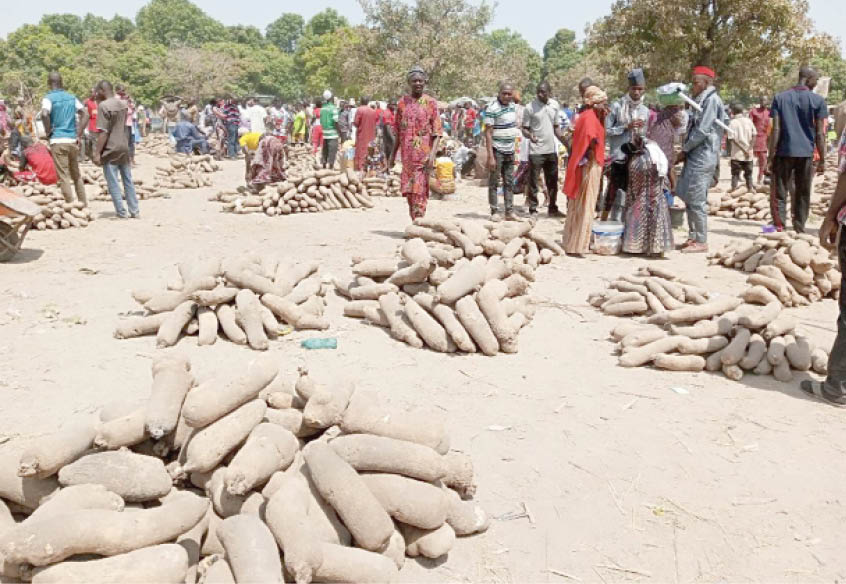African agricultural experts have called for capacity and institutional infrastructural development to minimise impacts on economies caused by global spikes in prices of fertilisers and basic commodities.
They made the call during a virtual meeting hosted by African Agricultural Technology Foundation (AATF) to discuss current global trends, their drivers and impact on the agricultural sector.
Why shea-butter business is no longer booming in Kwara
Why Northern governors insist on implementation of National Livestock Transformation Plan
The Executive Director of AATF, Dr Canisius Kanangire, said the impact of the Russia-Ukraine conflict on food security has taken heavy toll on countries highly dependent on wheat imports from the Black Sea region.
Dr Kanangire observed that in Africa, the crisis has exposed how vulnerable the continent’s food systems are.
“The big question is, how should African countries respond to the crisis?” he posed, adding that the direct and indirect impact of the crisis on Africa’s agriculture deserves a closer look, not only on how it negatively impacts the sector but also considering emerging opportunities to rethink African agricultural investment going into the future.
He stated that the Russia-Ukraine conflict has led to the largest commodity price shock since the 1973 oil crisis, elevating prices for years to come.
Dr Ousmane Badiane, the founder and Executive Chairperson of AKADEMIYA2063, in his submission said Africa needs to understand patterns in global shocks and the nature of vulnerability to save livelihoods.
He urged African governments to have institutional frameworks, including technical experts, that allow governments to anticipate and analyse impacts of the shocks.
“It is about our capacity to understand the shocks and plan around them. Even if we were to double Africa’s agricultural production today, the shocks in the global market would be transmitted to our local markets,” he pointed out.
Dr Badiane added that the fertiliser production challenges in Africa are due to low purchasing power by smallholder farmers. He said Africa was still at risk and may not cushion itself because of the high cost of fertiliser production marked with low demand in the continent.
The National President of the All-Farmers Association of Nigeria (AFAN), Arch Kabir Ibrahim, said that the vulnerability of Africa’s economy to various shocks – such as the Covid-19 pandemic, Russia-Ukraine war and insecurity – could only be mitigated by the evolution of an efficient “Africa food system”.
“All countries in Africa must commit to sizeable investments in agriculture to bolster their food systems to avert further stresses and challenges of food and physical insecurity pervading the entire continent,” he said.
Mr Ibrahim added that the Russia-Ukraine war should serve as a wake-up call to Africa if the continent wants to become sustainably competitive and prosperous.
“The smallholder farmers are the engine of agricultural production in Africa. With the low level of mechanisation in the continent, they must be directly subsidised to attain a reasonable level of food sufficiency,” he stated.
Dr Daniel Kyalo Willy, a programme officer and policy expert at AATF, said the Russia-Ukraine crisis has exposed the vulnerability of Africa’s food systems, thereby raising the need for strategic actions to reduce the over-dependence on a few countries for strategic food commodities.
“There is a need to diversify the content of the food basket with inclusion of locally produced food commodities,” he said.
Dr Kyalo proposed tapping into agro-ecological diversity to boost production of priority crops through incentives for production, processing, blending and consumption of locally produced agricultural commodities.

 Join Daily Trust WhatsApp Community For Quick Access To News and Happenings Around You.
Join Daily Trust WhatsApp Community For Quick Access To News and Happenings Around You.